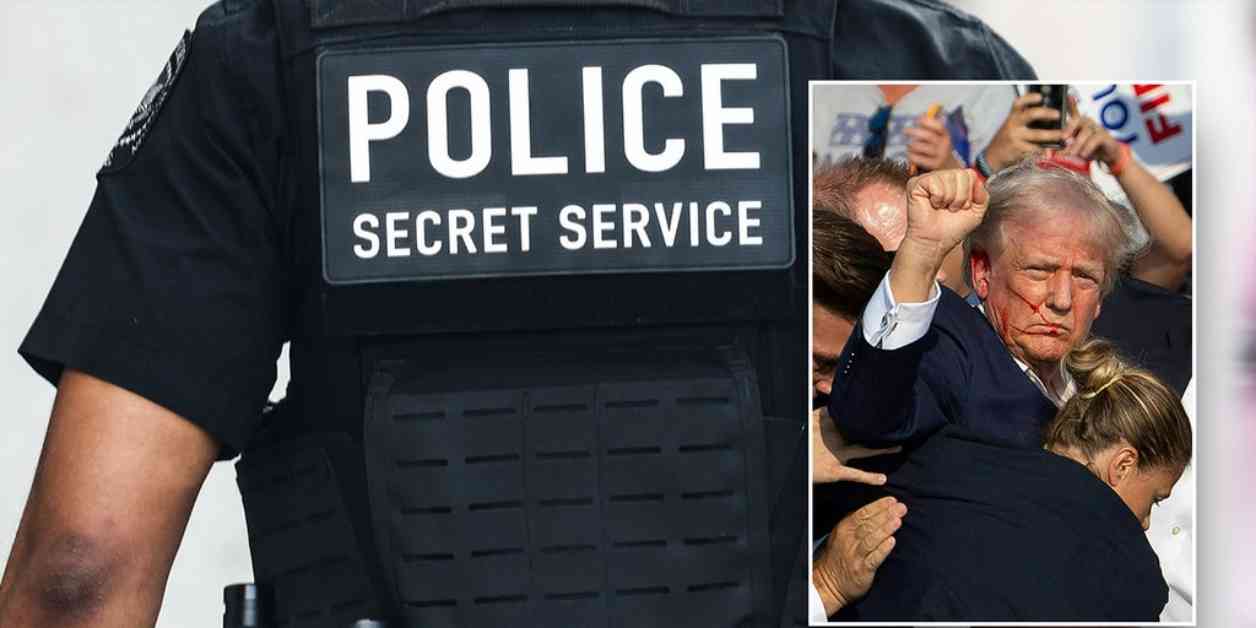House Republicans are currently grappling with the challenge of emergency funding for the U.S. Secret Service (USSS) amidst the looming threat of a partial government shutdown on October 1. Speaker Mike Johnson, R-La., is pushing for a vote on a short-term spending patch known as a continuing resolution (CR) in an attempt to avert the shutdown. This CR is also being paired with a measure that would require proof of citizenship for voter registration, known as the Safeguarding American Voter Eligibility (SAVE) Act. However, the likelihood of this plan succeeding is low, given significant opposition from GOP members to any form of CR and Democrats’ resistance to the SAVE Act.
Several House Republicans have indicated that they are preparing for a scenario where a CR with no conservative policies attached is passed, mirroring the stance taken by the Senate Democratic majority. However, in light of recent assassination attempts against former President and current GOP presidential nominee Donald Trump, there is growing support among GOP lawmakers for additional funding for the USSS. The heightened security concerns following these incidents have underscored the importance of ensuring adequate resources for the protection of high-profile individuals.
Representative John Duarte, R-Calif., emphasized the critical need for increased funding for the USSS in light of recent security threats, stating, “We’ve had two attempts on the president in the last month or two, and we know how devastating these assassinations could be to the country. So if things are so heightened that we have to add more Secret Service funding, it’s important for our democracy that we do it.” This sentiment is echoed by other GOP lawmakers who believe that allocating additional funds to the USSS is imperative in safeguarding national security.
Amid discussions about the possibility of a “clean” December CR without conservative policies, senior House Republicans have acknowledged the historical precedent of such funding measures. However, there is a growing consensus among GOP lawmakers that additional USSS funding should be considered as part of a backup plan in the event of the current proposal’s failure. The urgency of addressing security concerns has prompted discussions about the logistical challenges of swiftly implementing increased funding for the USSS.
While there is a general appetite among House Republicans to allocate more resources to the USSS, some lawmakers have raised concerns about the organizational priorities of the agency. Representative Andrew Clyde, R-Ga., suggested that the USSS may have a priority problem rather than a funding issue, emphasizing the need for a strategic reassessment of the agency’s operations. Similarly, Representative Byron Donalds, R-Fla., highlighted the importance of addressing organizational shortcomings within the USSS to enhance its effectiveness.
As the debate over emergency funding for the USSS continues, the House is also set to vote on a bipartisan bill that would grant former President Trump and Vice President Kamala Harris the same level of Secret Service protection as President Biden. This measure underscores the bipartisan recognition of the need to ensure the safety and security of all individuals holding high office.
In conclusion, the deliberations surrounding emergency funding for the U.S. Secret Service highlight the complex challenges facing lawmakers in navigating the path to avert a government shutdown. Amidst heightened security concerns and the need to address organizational priorities within the USSS, there is a growing consensus among GOP lawmakers on the importance of allocating additional resources to enhance security measures. As the debate unfolds, the focus remains on finding a viable solution that balances fiscal responsibility with the imperative of safeguarding national security.


















